
Sound Designer
The Aromanians (Rrãmãnji) are an ethnic group found mainly in today’s Albania, Greece, Bulgaria and Romania. For filmmaker Alexandra Gulea, this question of heritage is connected to the name she shares with her grandmother, who was born into a traditional Aromanian life, and is fluent only in an Aromanian language. The older Alexandra's father suffered a violent death in an uprising for his people's rights, which forced the family out of Greece and into a politically treacherous Balkan landscape deep in the throes of nationalist upheavals, until finally, they found a home in Romania.

Sound Mixer
How can cinema engage with complicity in crimes against humanity, extreme violence and state terror without conniving in it? De Facto finds answers to this question via two actors, a precisely compiled collage of texts and a deliberately reduced setting.

Sound
A prospective wish is announced at the very beginning: "Imagine a land without ownership". Ownership? Since when? How? Where? With which implications? This is what Marwa Arsanios endeavours to discover in the fourth part of her meticulous ongoing project whose generic title is Who Is Afraid of Ideology? After documenting feminist experiments of community autonomy in Lebanon, Kurdistan and Syria (Who Is Afraid of Ideology? I&II, FID 2019), Marwa Arsanios ventures a hypothesis in the form of speculative fiction, from a remote piece of land in Lebanon, a cut in a stone quarry. In this small piece of land, a few sidekicks make that postulate, and slowly share stories of domination and exploitation. This land has a complicated administrative, legal, geological and biological history. (Nicolas Feodoroff - FIDMarseille)

Sound Mixer
The Tara is a river on the outskirts of Taranto whose waters are believed to have healing properties; bathing there is a tradition for the inhabitants of the city. Starting from this bucolic place, Volker Sattel and Francesca Bertin take us on a journey through a territory where myths clash with reality and where so-called “progress” has taken a heavy toll on nature and society.

Sound Mixer
On operated by Prussian prime minister Otto von Bismarck the German Empire is finally founded in 1871 on the floors of Versailles castle, ancestral seat of the French monarchy.

Sound Mixer
An archaeologist and a weapons designer, who knew each other in a previous life as a filmmaker and a psychoanalyst, meet at an excavation site in the Negev desert and begin a conversation about love and war, which they continue in the Israeli city of Be’er Sheva. A series of encounters with alternating actors in different roles ensues, which leads the viewer through the cities of Athens, Berlin, Hong Kong and São Paulo. Among those appearing are: an old artist who meets his younger self; a mother who lives with her two grown-up sons, a priest and a policeman; a Chinese and a Japanese woman; a curator and a cosmologist.

Sound Designer
The film shows the Antivilla built by Arno Brandlhuber in Potsdam, Krampnitz, between 2010 and 2015. The building has the project number 0131 in the catalog of works by Brandlhuber +. The shooting of Antivilla took place on April 4, 2016 in preparation for the feature film Streetscapes [Dialogue].

Sound Mixer
A reflection on the concept of pain through an immersive flow of images and words.

Sound Re-Recording Mixer
Set to a breath-like rhythm, Anna Marziano’s Beyond the One is an essayistic exploration of love’s various guises, considering different attempts at courtship, living together, and sustaining connections with people once they have died.

Sound Editor
Documentation about Christoph Schlingensief's legendary election campaign. With his theater and art actions, as a filmmaker and opera director, Christoph Schlingensief (1960–2010) shaped cultural and political discourse in Germany over two decades. The party “Chance 2000” was Schlingensief's biggest, most public project up to that point. For the 1998 general election Schlingensief organized an “election campaign circus“ in Berlin and founded the party Chance2000. This is an ecstatic piece of political education and a tale of a party’s life and survival.

Sound Mixer
The last film in Vidokle's trilogy on Cosmism is a meditation on the museum as the site of resurrection-a central idea for many Cosmist thinkers, scientists and avant-garde artists. Filmed at the State Tretyakov Gallery, the Moscow Zoological Museum, The Lenin Library, and the Museum of Revolution, the film looks at museological and archival techniques of collection, restoration and conservation as a means of the material restoration of life, following an essay penned by Nikolai Federov on this subject in the 1880s. The film follows a cast comprised of present-day followers of Federov, several actors, artists and a Pharaoh Hound that playfully enact a resurrection of a mummy, a close examination of Malevich's Black Square, Rodchenko's spatial constructions, taxidermied animals, artifacts of the Russian Revolution, skeletons, and mannequins in tableau vivant-like scenes, in order to create a contemporary visualization of the poetry implicit in Federov's writings.
![2+2=22 [The Alphabet]](https://moviedb.kr/index.php/image/w500/5hxLZe2Wm0kN2x4oOEHEJoQtJij.jpg)
Sound Designer
Worn-down pavements, broken paving stones. Trees that jut out of the concrete, casting shadows on to crumbling façades. The centre of Tbilisi in the summer of 2013. Glimpses of side and main streets, over railings and under balconies, of an architectural cacophony. The voiceover spoken by Natja Brunckhorst reflects on the nature of streets and public spaces.
![Bickels [Socialism]](/assets/images/no-backdrop.png)
Mixing Engineer
The ‘Casa do Povo’ cultural centre in São Paulo, an icon of the secular Jewish workers’ movement: a crumbling theatre flanked by staircases, entryways and corridors. Construction noise drones away in the background, clinking crockery, a broom sweeping over tiled floors, an expressive façade of countless adjustable panes of glass covered by a patina. It’s October 2016 and a group of young people are preparing a preview of Bickels [Socialism]. The venue is to form a prologue to the completed film, which tours 22 buildings in Israel designed by Samuel Bickels, most of which for kibbutzim. Dining halls, children’s houses, agricultural buildings, bright structures inserted into the Mediterranean landscape with great ingenuity. An architecture with a sell-by date: That many are now empty or have been repurposed at best is linked to the decline of the socialist ideals they embody.

Sound Editor
A young couple goes on a day trip to an island next to Istanbul. They find themselves captivated by the never ending cityscape and sink into a contemplation on urban decay. Living in a concrete jungle is their future.

Sound Mixer
A film essay investigating the question of what “the West” means beyond the cardinal direction: a model of society inscribed itself in the Federal Republic of Germany’s postwar history and architecture. The narrator shifts among reflections on modern architecture and property relations, detailed scenes from childhood, and a passed-down memory of a “hemmed-in West Germany,” recalling the years of her parents’ membership in a 1970s communist splinter group.
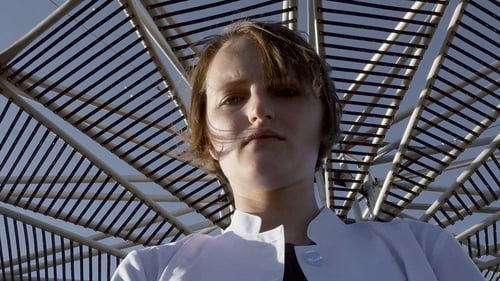
Sound Mixer
The second installment of Anton Vidokle’s trilogy on Russian cosmism, The Communist Revolution Was Caused By The Sun, looks at the poetic dimension of the solar cosmology of Soviet biophysicist Alexander Chizhevsky. Shot in Kazakhstan, where Chizhevsky was imprisoned and later exiled, the film introduces Сhizhevsky’s research into the impact of solar emissions on human sociology, psychology, politics, and economics in the form of wars, revolutions, epidemics, and other upheavals. It aligns the life of post-Soviet rural residents and the futurological projects of Russian cosmism to emphasize that the goal of the early Soviet breakthroughs aimed at the conquest of outer space was not so much technical acceleration, but the common cause of humankind in their struggle against the limitations of earthly life.

Sound Mixer
The cheap white sport socks of the man in front of me on the cue to Aldi’s cashier, reminded me of you. Edited from recycled materials that were originally filmed for music-videos for the band Kreidler, this short film premiered at the Oberhausen Kurzfilmtage 2015.

Sound Designer
After receiving some bad news, a New York escapes to Southern Indiana to visit her old friend, a frustrated sex researcher. The two women embark on a local road trip through a place that has seen better days. Part road trip, part meditation, part improvised fiction, part documentary, Rosehill is a film about crisis and eternal change, the darkness and resilience of the human spirit.

Sound mixer
A documentary focusing on group leisure activities.

Sound Designer
A documentary focusing on group leisure activities.
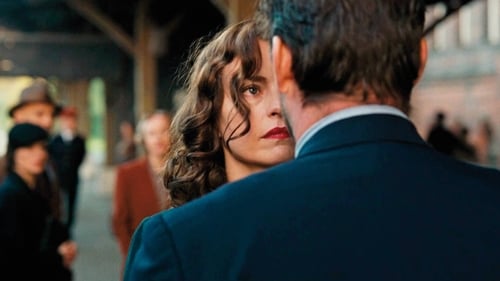
Dialogue Editor
German-Jewish cabaret singer Nelly survived Auschwitz but had to undergo reconstructive surgery as her face was disfigured. Without recognizing Nelly, her former husband Johnny asks her to help him claim his wife’s inheritance. To see if he betrayed her, she agrees, becoming her own doppelganger.

Sound Mixer
A day in the European Parliament and surrounding area. This dance film is inspired by the work and lifestyle of the Eurocrats in Brussel’s EU district and features five dancers. The characters dance, run and glide through the empty spaces in an atmosphere beyond time, decontextualized, in an architectural non-site.

Sound
In April of 2013, American singer Patti Smith travels to the grave of French writer Jean Genet in Larache, Morocco. She brings him three stones, which she collected for him over 30 years ago.

Sound Designer
The film juxtaposes/compares two museums: The Museum of Art, Ein Harod, Israel, which Samuel Bickels (1909-1975) built there in 1948, and The Menil Collection in Houston, Texas, built by Renzo Piano (b. 1937) 1986 . The method of natural lighting in Bickels‘s construction was the direct model for Piano, who adopted for his construction at the request of its patroness Dominique de Menil.

Sound Mixer
Based on the ideas of Russian philosopher, Nikolai Fedorov, Anton Vidokle’s film was shot in Siberia, Crimea, and Kazakhstan. Fedorov, like others, believed that death was a mistake, “because the energy of cosmos is indestructible, because true religion is a cult of ancestors, because true social equality is immortality for all.” Fedorov was one of the Cosmo-Immortalists, a surge of thinkers that emerged in Russia in the late 19th and early 20th centuries. They linked Western Enlightenment with Russian Orthodoxy and Eastern philosophical traditions, as well as Marxism, to create an idiosyncratically concrete metaphysics. For the Russian cosmists, cosmos did not mean outer space: rather, they wanted to create “cosmos” on earth. “To construct a new reality, free of hunger, disease, violence, death, need, inequality – like communism.”

Sound Editor
Hasan Hourani, a Palestinian poet and illustrator, died aged 29 in Jaffa while trying to rescue his nephew from the sea. Shortly after, the filmmaker Mais Darwazah discovers his drawings and poems and feels drawn to Hourani's world— a universe outside space and time; a place of wonder, discovery, and freedom. Motivated by this kinship, Darwazah embarks on a journey to her homeland, Palestine: a place she has never known.

Sound Designer
Alfred Roch, member of the Palestinian National League, is a politician with a bohemian panache. In 1942, at the height of WWII, he throws what will turn out to be the last masquerade in Palestine. Inspired by an archival photograph, A Sketch of Manners (Alfred Roch’s Last Masquerade) recreates an unconventional bon vivant aspect of Palestinian urban life before 1948. Posing silently for a group photo, the unmasked and melancholic pierrots accidentally personify the premonition of an uncertain future.
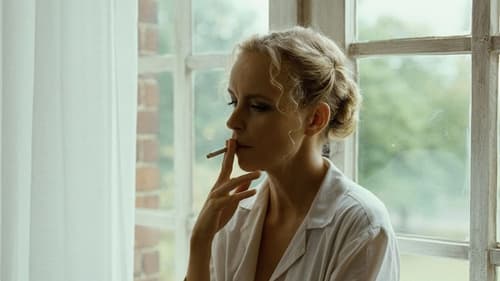
Sound Editor
In 1980s East Germany, Barbara is a Berlin doctor banished to a country medical clinic for applying for an exit visa. Deeply unhappy with her reassignment and fearful of her co-workers as possible Stasi informants, Barbara stays aloof, especially from the good natured clinic head, Andre.

Sound Designer
A young woman called Fiona shows up in a city in the Ruhr area to work for the Bauer family as a housekeeper. Father, mother, daughter and son all live their own lives, co-existing without communicating. Nobody realizes that Fiona has made a decision.

Sound Designer
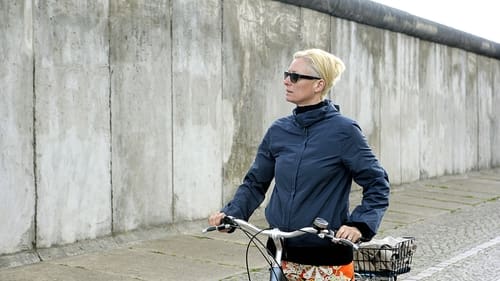
Sound
In 1988 Cynthia Beatt and the young Tilda Swinton embarked on a filmic journey along the Berlin Wall into little-known territory. The film CYCLING THE FRAME is now an unusual document. 21 years later, in June 2009, Beatt & Swinton re-traced the line of the Wall that once isolated West Berlin. THE INVISIBLE FRAME depicts this poetic passage through varied landscapes, this time on both sides of the former Wall.
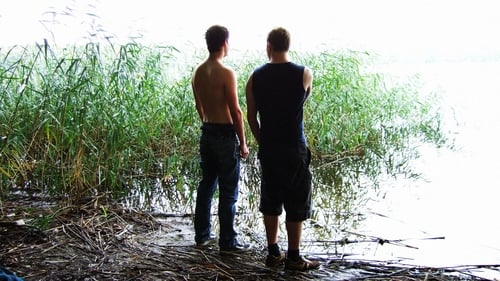
Sound Re-Recording Mixer
Johann and Robin, a young gay couple, travel to the countryside to get to know each other better. After several days of hiking, they arrive at an old farmhouse inhabited by a woman and her adolescent son, and take refuge with the welcoming family.

Sound Designer
Johann and Robin, a young gay couple, travel to the countryside to get to know each other better. After several days of hiking, they arrive at an old farmhouse inhabited by a woman and her adolescent son, and take refuge with the welcoming family.

Sound Mixer
In Comparison revisits issues explored in the director's 2007 two channel installation Comparison Via a Third. Spanning continents and cultures, the film focuses on the brick in its many contexts, from the collective efforts of a community building a clinic in Burkina Faso, through semi industrialized moldings in India, to industrial production lines in Germany, France, Austria and Switzerland. Through its notable structure and its captivating rhythms, In Comparison presents various methods of labor production, allowing for an assessment that changes with every layer and goes well beyond a simple binary divide.










![2+2=22 [The Alphabet]](https://moviedb.kr/index.php/image/w500/5hxLZe2Wm0kN2x4oOEHEJoQtJij.jpg)
![Bickels [Socialism]](/assets/images/no-backdrop.png)

















